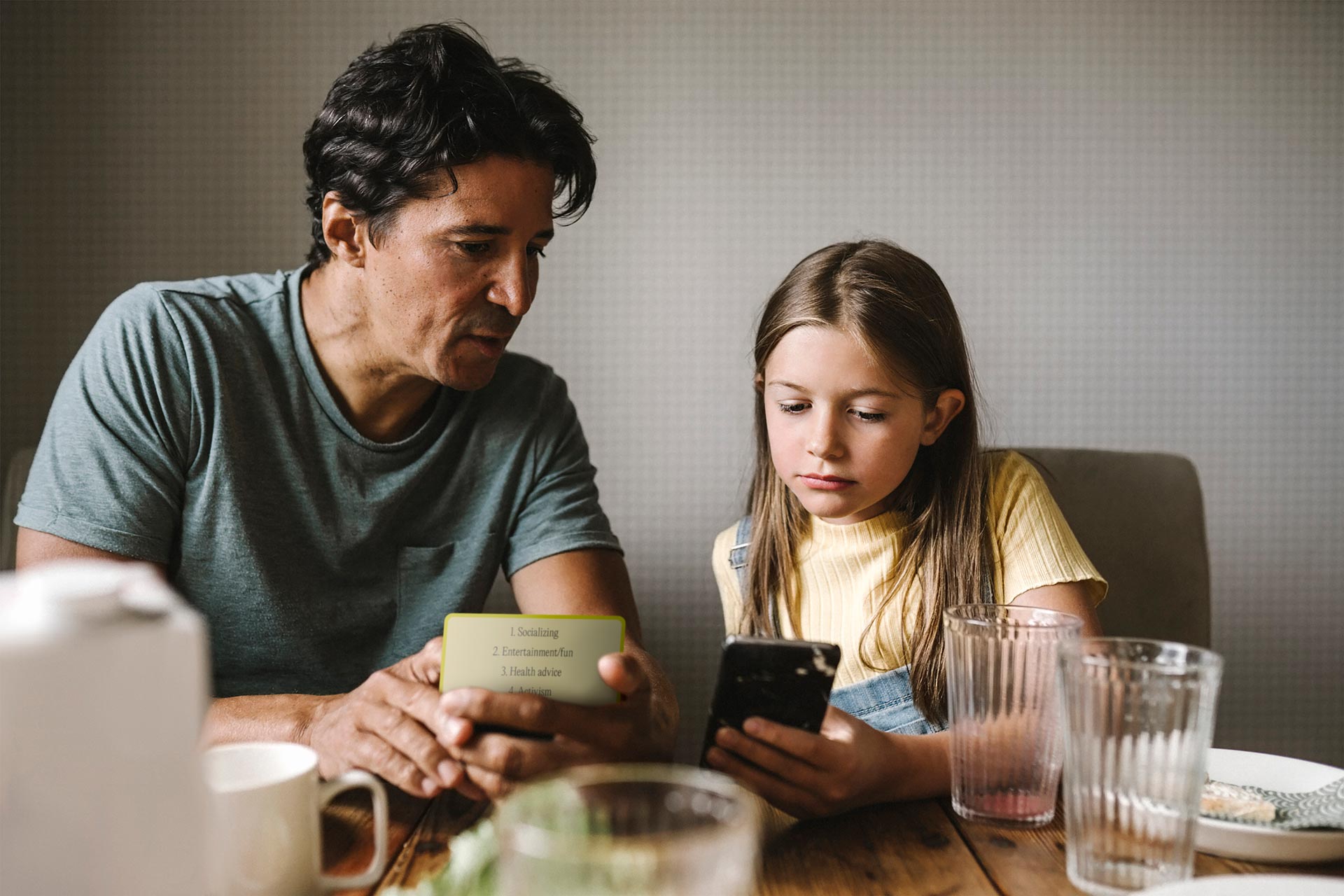First things first, before diving into the specific types of scams and how to avoid them, the basics of digital safety lie in digital literacy.
Digital literacy is about the ability to navigate digital devices and online spaces. When it comes to safety, digital literacy describes the understanding of technology and the online culture, and the knowledge about the online safety features available.

Digital literacy is digital safety
When teaching our kids digital literacy to keep them safe, it’s not only about making sure a firewall and antivirus software are active, that popups are blocked, and teaching the necessity of privacy settings when opening a new account on social media or a gaming platform.
Kids also need to know about the technical tools available to them to keep them safe when interacting online. We must teach them about how to report and block suspicious accounts, disrespectful behaviour, or harmful content.
They need to know never (ever) to share their passwords with anyone, and that asking for help from an adult is very important if something online makes them uncomfortable or confused.
More than just technical skills
But digital literacy is not only about technical skills or how easily someone moves through the digital landscape, locates, and manages important features. The technical skills are important to learn, but often not the part our young digital natives struggle with.
A far greater part of digital literacy that is important for online safety demands more practice and maturity from the users, and takes a bit of guidance from parents and teachers as well.
This kind of digital literacy is about how we ‘read’ or understand the online content and context, and how we adjust our behavior accordingly.
There are three things we can practice with our kids today to improve digital literacy and the fundamental skills needed to lower the risk of being scammed online.
- Practice critical thinking skills both online and offline
- Teach consent and why it’s important in online interactions
- Have conversations based on trust and authentic self-reflection about our online experiences and behavior
Critical thinking
Critical thinking is about not taking everything at face value, but reflecting on the motives and effects of specific content or digital features. It is about assessing what content or interaction can be trusted, and understanding that some things online are not as they seem, and there can be many ‘truths’ or perspectives to what you read or see online.
The ability to practice critical thinking is a general skill that is essential in real life as well as online life when fighting off digital scammers, both when judging our own actions (or digital content) and those of others.
Consent
Additionally, practicing consent in digital interaction is crucial. This lays the foundation for safe interaction for everyone online. If our kids are aware of the importance of consent in the online environment as well when sharing or posting, it will help keep both them and others safe.
Knowing about the importance of consent and practicing this when sharing online content is not just about keeping yourself safe. It is also about not compromising other people's safety and digital footprint when handling their private information or digital content.
Conversations and shared experiences
The best way to teach these skills around digital safety is by inviting to open and authentic conversations about the threats of online scams. Adults are just as much a target for constant scamming attempts, so we should have plenty of examples to share that can spark these conversations.
Our automatic responses when sorting through our inbox or downloading software are worth sharing. This can be a great lesson in how to avoid phishing scams.
Additionally, many well-experienced adults fall for scamming attempts. The mistakes or unlucky experiences are worth sharing, too, to pass on important lessons.
These conversations can create a valuable foundation for a relationship built on trust, where experiences and mistakes are shared without fearing shame or punishment.

Instead, we share for the purpose of learning and teaching that everyone can make mistakes and shouldn’t fear getting in trouble or be ashamed of getting help in harmful situations.
However, many parents struggle with getting kids to open up or engage in educational conversations. This is why we have created The Raising Digital Citizens Kit with 200 questions to cover all the essential topics of life online, needed to stay safe and happy.
The feedback from families, and kids especially, has been overwhelming. It’s a fun and easy way to get children to open up and reflect on their online experiences.
Children simply love it when parents show interest, ask the right questions, and listen.
Your relationship with your child and the conversations you have about their digital life are the key to keeping them safe online.





